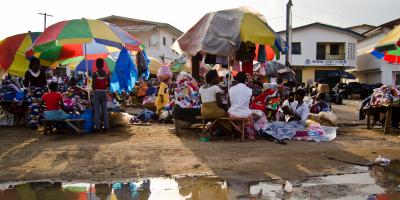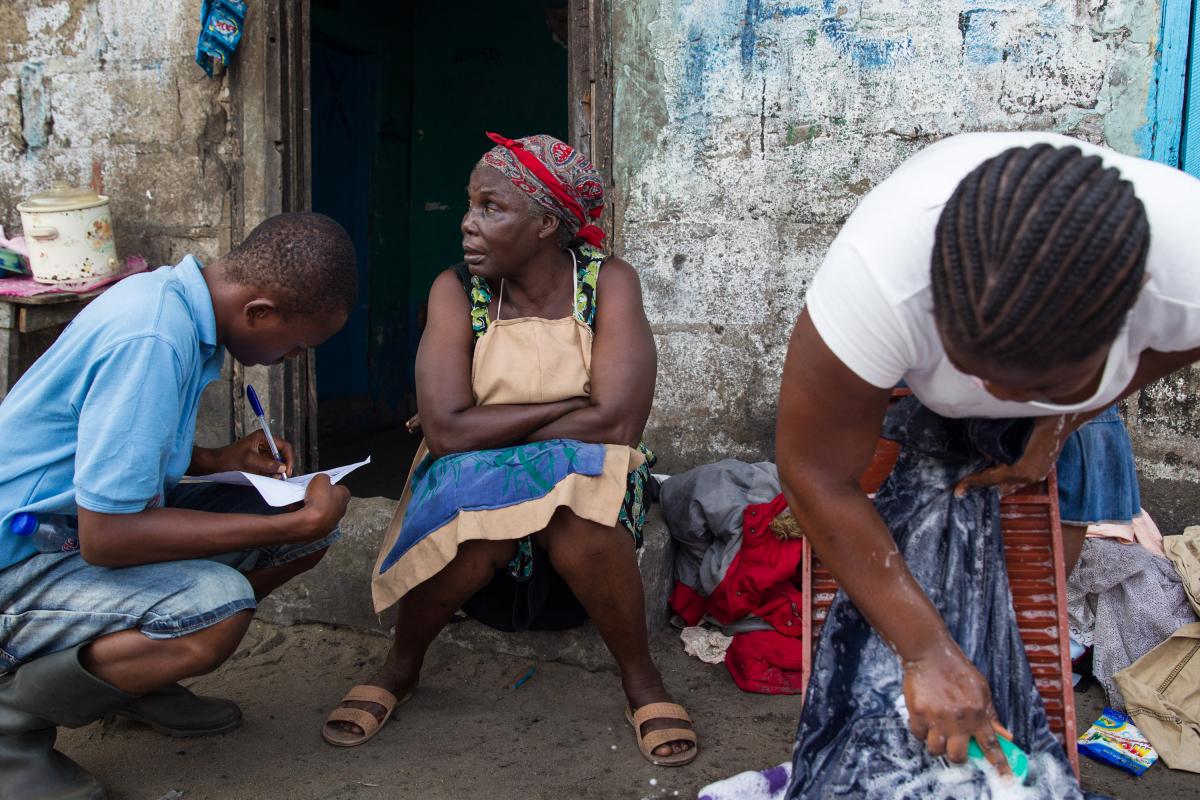
As part of IDLO's project to increase accountability for sexual and gender-based crimes in Liberia, it is working to build the capacity of judges to effectively handle and dispose of sexual and gender-based violence cases. The project aims to enhance the efficiency, transparency and accountability of the judicial process to improve access to justice for survivors of sexual violence.
Sexual violence in Liberia
The Liberian government and the international community have focused efforts on addressing sexual violence in the country since the end of the civil war in 2003. Reports emerging from the 14-year long conflict show that sexual violence was considered a “characterizing feature” and rape reached “endemic” levels.
In addition to persisting impunity for crimes committed during this period, a 2016 UN report shows that rape remains the second most common crime in Liberia and still poses a considerable threat to women and girls.
In response to urgent demands for improved judicial remedies, a special court designated to deal exclusively with sexual offenses, Criminal Court “E”, was established in December 2008. However, high caseloads, reduced functioning of the jury system and lack of support services for survivors limit the Court’s effectiveness.
Notably, a 2016 study by IDLO showed that in 2015, among the 1396 cases reported to the five Montserrado one-stop clinics, a staggeringly low 267 were reported to the Liberia National Police, 119 received an indictment, and only 3 cases proceeded to trial.
The UN report also cited institutional weakness as a reason why survivors lack confidence in the justice delivery system, compromising the rule of law. Strengthening the body of knowledge around sexual and gender-based violence cases through exchanges between judiciaries can therefore help ensure effective justice delivery to survivors.
|
Photo UNMEER |
Collaboration with South Africa
Liberia and South Africa have a longstanding relationship and share similar experiences and challenges in addressing sexual and gender-based crimes. In developing more effective mechanisms, there is an opportunity for the Liberian and South African judiciaries to exchange knowledge.
In partnership with the Liberia Judicial Institute and South African counterparts, IDLO hosted a training on sexual and gender-based violence (SGBV) in Monrovia, Liberia for circuit court judges and stipendiary magistrates from January 31 to February 01. Targeting 47 judges and magistrates from all over the country, the objective of the workshop was to facilitate continued cross learning between the Liberian and South African judiciaries on handling sexual and gender-based violence cases.
The two-day capacity building workshop follows the success of the first SGBV training for judges held in April of 2017 in Monrovia.
Enhancing cooperation
In his opening remarks at the workshop, Liberian Chief Justice Hon. Francis S. Korkpor Sr. welcomed the continued collaboration with the South African Judiciary and IDLO on training for sexual and gender-based violence cases and reaffirmed his belief that continuing legal education is essential for an effective judiciary.
Commenting on the differences between the South African and Liberian legal systems, the Chief Justice noted that the two are grounded on common principles of justice and fairness. “The law is the law and it transcends borders and jurisdictions,” he remarked.
The workshop was facilitated by Judge Margaret Victor and Judge Selby Baqwa, senior High Court Judges from the South African judiciary and trainers within the South African Judicial Institute, which is responsible for continuing education for judicial officers. Informed by the needs emerging from the first training, the topics ranged from analyzing forensic evidence in SGBV cases, school-based sexual harassment, human trafficking and instructing the jury in SGBV trials. A session on case management by judges in the court room was also held.
The facilitators used adult learning methods which incorporated practical exercises on jury instructions as well as interactive techniques that enabled participants to supplement existing knowledge with new information from exchanges with counterparts.
In addition, the group broke into smaller groups of about 25 participants each and worked in parallel sessions with the two judges over the training period to facilitate greater interaction between the facilitators and the participants.
The judges expressed overall satisfaction with the workshop highlighting that the training had been particularly helpful in ways of dealing with domestic violence cases, as the focus on SGBV tended to focus on sexual assault. In addition, the participants expressed satisfaction with the opportunity to learn from another jurisdiction, in particular about managing cases as judges, given the challenges of backlogged dockets.
“Judicial cooperation across countries is of utmost importance,” commented IDLO Field Program Manager in Liberia, Ms. Teresa Mugadza. “Exchanging knowledge and experience between judiciaries can enhance judicial effectiveness and in turn bring justice to survivors of sexual violence.”
IDLO’s project in Liberia is funded by the United States Department of State.
Photo by Cameron Zohoori, togetherliberia.org


